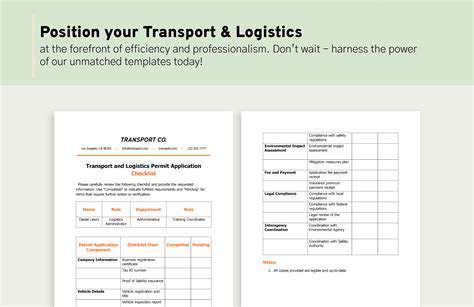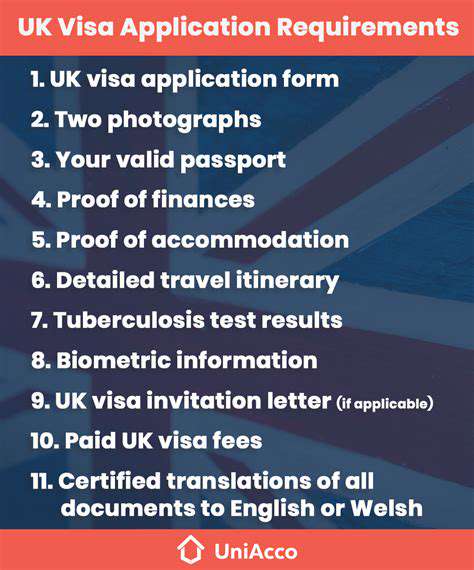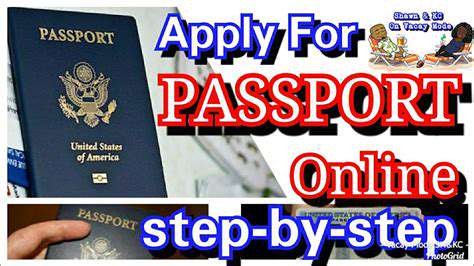How to Apply for a Long Term Tourist Visa
Gathering Necessary Documents
The document collection phase makes or breaks visa applications. You'll typically need a passport valid beyond your travel dates, financial proof like recent bank statements, and a clear travel plan with flight and accommodation confirmations. Every nation has unique document demands, so cross-checking requirements prevents last-minute scrambles.
Financial Proof and Stability
Immigration officers scrutinize financial stability closely. Most countries want to see bank statements proving you can cover all trip expenses. The exact amount varies dramatically—some destinations require proof of thousands in available funds. Adding employment verification or sponsorship letters strengthens your case by showing you won't overstay or seek local employment.
Travel Itinerary and Accommodation
A day-by-day travel plan with booked hotels or tours demonstrates you're a genuine tourist who will depart on schedule. Embassy officials often view unconfirmed itineraries as red flags. Secure those hotel reservations—even refundable ones—before applying to boost your credibility.
Contact Information and Previous Travel History
Accurate contact details let officials reach you if questions arise. Your passport's travel stamps tell a story too—previous visits to the same country or other nations with good compliance records can work in your favor during the evaluation process.
Visa Application Procedures and Fees
Each embassy operates differently. Some require in-person interviews while others process everything online. Application fees range from nominal to substantial. Mapping out the complete process timeline prevents missed appointments or payment deadlines that could derail your plans.
Submitting Your Application and Tracking Progress
Application Submission Procedures
Submission mistakes rank among the top reasons for visa denials. Study the application guidelines like your travel plans depend on it—because they do. Skipping sections or missing signatures invites rejection. Treat every field as mandatory, even if marked optional.
Develop a submission checklist: forms, fees, supporting documents. Better yet, have someone review your entire packet—fresh eyes catch errors you might overlook.
Eligibility Requirements
Visa qualifications aren't flexible. If the rules state you need $5,000 in your account or specific health insurance, partial compliance won't suffice. Honestly assess whether you meet every stated requirement before investing time in the application.
Supporting Documentation
Disorganized paperwork frustrates visa officers. Number your documents according to the embassy's checklist and use divider tabs for quick navigation. Include a cover sheet listing all enclosed materials with your contact information.
Application Deadlines
Embassies don't care about your flight deadlines—their processing timelines are absolute. Apply months early during peak seasons. Build in buffer time for unexpected delays like additional document requests.
Contacting the Admissions Office
When instructions seem unclear, call the consulate. Getting clarification directly from the source prevents easily avoidable mistakes. Note the name of whoever provides information in case you need to reference the conversation later.
Reviewing Your Application
Put the application aside for 24 hours before final review. You'll spot inconsistencies and omissions much more easily with fresh perspective. Verify all dates match across documents—passport numbers, names, and travel dates should be identical everywhere.
Payment and Fees
Payment issues surprisingly derail many applications. Confirm whether fees must be paid locally or in the destination currency. Print payment confirmations immediately—some systems don't provide receipts for online transactions.


![Top 10 Adventure Destinations in the World [2025]](/static/images/27/2025-05/ConqueringtheHimalayas3AMountaineeringandTrekkinginNepal.jpg)
![Taking a Pottery Workshop in Morocco [Cultural Experience]](/static/images/27/2025-05/BeyondtheWorkshop3AConnectingwiththeLocalCommunity.jpg)
![Best Luxury Travel Credit Cards [2025]](/static/images/27/2025-05/ExploringSpecificCardOptionsfor2025.jpg)




![Experiencing Indigenous Cultures Around the World [Ethical Guide]](/static/images/27/2025-06/ResponsibleTourismPractices.jpg)

